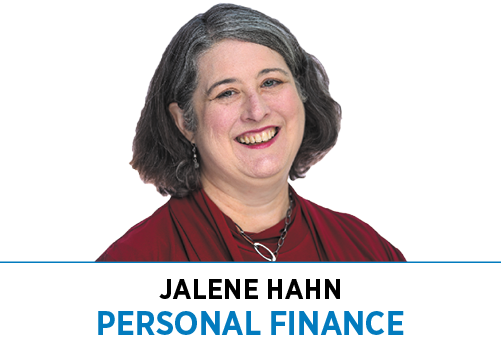Subscriber Benefit
As a subscriber you can listen to articles at work, in the car, or while you work out. Subscribe Now Most people wouldn’t recognize the name Daniel Kahneman, but he was a founding father of behavioral economics/behavioral finance. He died on March 27 at the age of 90. What made his work remarkable, and pioneering, is that he was trained in psychology and not economics. He received the Nobel Prize in Economics in 2002. The Nobel citation commended Kahneman “for having integrated insights from psychological research into economic science, especially concerning human judgment and decision-making under uncertainty.”
Most people wouldn’t recognize the name Daniel Kahneman, but he was a founding father of behavioral economics/behavioral finance. He died on March 27 at the age of 90. What made his work remarkable, and pioneering, is that he was trained in psychology and not economics. He received the Nobel Prize in Economics in 2002. The Nobel citation commended Kahneman “for having integrated insights from psychological research into economic science, especially concerning human judgment and decision-making under uncertainty.”
Before Kahneman and his colleagues, economic theory, and the practice of finance, consisted of investigating the reliability of the Efficient Market Hypothesis and the Capital Asset Pricing Model. Both theories assumed that all data was readily available and that investors acted rationally. The field of behavioral finance brought forth the notion that individual thinking contains inherent systematic errors.
Kahneman’s 2011 best-selling book, “Thinking, Fast and Slow,” is about how two systems—intuition and slow thinking—shape our judgment and how we can effectively tap into both. “System 1” thinking is fast, instinctive and emotional, consisting of mental activities that we’re more or less born with; “System 2” thinking is slower, more deliberative and more logical, and requires a more complex effort. Others have personified these mental modes as econs (rational, analytical people) and humans (emotional, impulsive and prone to exhibit unconscious mental biases and an unwise reliance on dubious rules of thumb). These rules of thumb are referred to as “heuristics.” Some examples I’ve written about before include anchoring, recency bias and framing.
Kahneman proposed four simple strategies for better decision-making that can be applied to both finance and life.
1. Don’t trust people, trust algorithms. Algorithms are essentially rules. The formal definition is that an algorithm is a finite set of instructions carried out in a specific order to perform a particular task. Kahneman said, “There are very few examples of people outperforming algorithms in making predictive judgments. So when there’s the possibility of using an algorithm, people should use it. We have the idea that it is very complicated to design an algorithm. An algorithm is a rule. You can just construct rules.”
2. Take the broad view. “Narrow framing” describes the way we tend to see each decision in isolation. We focus on the details instead of looking at the bigger picture. “Broad framing” takes each decision in the context of all the other decisions.
3. Test for regret. Regret theory states that people anticipate regret if they make the wrong choice. Regret theory can impact investors’ rational behavior, impairing their ability to make investment decisions that would benefit them. Kahneman said, “The more potential for regret, the more likely individuals are to churn their account, sell at the wrong time, and buy when prices are high.” The research suggests that the more potential for regret, the greater the chance that you will make a bad decision. So, when making a decision, understand that the potential for regret might cause you to make a sub-optimal choice.
4. Seek out good advice. According to Kahneman, the ideal adviser is, “A person who likes you and doesn’t care about your feelings.” It’s also important to get input from people who can help expand your perspective and limit bad decisions.
The area of behavioral finance continues to build on the work of Kahneman and others. When it comes to making big decisions, it’s important to slow down, reflect on your emotional state, remember your values, look at the long term, then make a purposeful response. It is easy to react to situations, but those immediate reactions don’t always produce the best results in complex situations.•
__________
Hahn is a certified financial planner and owner of WWA Planning and Investments in Columbus. She can be reached at 812-379-1120 or [email protected].
Please enable JavaScript to view this content.
